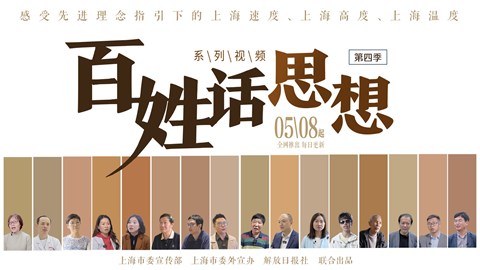Tea drink operators list on the Hong Kong stock exchange

On any casual stroll through most downtown shopping centers, you will find at least five or six tea drink vendors with colorful product displays, usually located on the ground floor or in underground shopping areas.
Leading leisure tea drink chain operator Mixue Bincheng's latest filing for an IPO in Hong Kong offers a peek into the popular and profitable operation as well as the industry as a whole.
Although the existing market in China is already highly competitive, Mixue Bingcheng has managed to grab the biggest market share.
For the first nine months in 2023, Mixue Bingcheng was ranked by domestic firm China Insights Industry Consultancy in top place in the domestic freshly-made drinks market, with a market share of approximately 11.2 percent in terms of gross merchandising volume, or 32.7 percent share in terms of cups sold.
Market watchers suggest the latest signs point to ambitious expansion strategies as a smaller player, Guming Holdings, with around 9,000 stores, also filed for initial listing in Hong Kong last week.

Mixue Bingcheng boasts a wide range of high-quality value-for-money offerings.
How has freshly made tea become a popular choice in addition to the existing bottled beverages?
A freshly made leisure drink usually cost around 10 (US$1.41) to 15 yuan , and has become a popular beverage with students and young office workers.
Apart from milk tea, the choices include fruit tea and coffees, in a variety of flavors to cater to the tastes of customers.
By offering a large menu of personalized flavor preferences, different levels of sweetness, and the mixing of different ingredients, freshly made teas that are suitable for different occasions have gained wide popularity besides just appealing to beverage lovers.
What's special about Mixue amid the crowded bubble milk tea market?
In contrast to most catering or coffee chain stores, Mixue only became familiar to consumers in big cities like Shanghai and Beijing after its widespread popularity in lower tier cities.
Unlike established coffee chain stores and tea vendors, Mixue has limited store space and most customers buy takeaway drinks. Therefore franchisees save rental costs to focus on store operations and products.
Leveraging its extensive supply chain and physical store network, the freshly-made coffee brand Lucky Cup also increased momentum with its high-quality value-for-money embraced by coffee drinkers.
Mixue has over 16,000 franchisees and, of over 32,000 stores nationwide, only 4.5 percent are located in first-tier cities, and third-tier and below cities account for over 56 percent of the total number of stores.
During the nine months ended September last year, 37 billion yuan of GMV was generated and approximately 5.8 billion cups were sold through its store network.

Tea drinks combined with seasonal fruit flavors woo consumers.
What is Mixue's secret recipe that catches the heart of consumers?
Mixue's iconic iced lemonade drink and ice cream which usually costs 3 to 5 yuan and even cheaper on some group buying discount websites, have appealed to price-sensitive shoppers.
In Shanghai, many Mixue stores are located in the vicinity of community neighborhoods, instead of central business districts. Therefore it also appeals to those who want to have a small treat when they go home from work or during weekends.
The brand's iconic "Snow King" cartoon figure was adopted as brand ambassador, and a vibrant matrix of audio and video content based on its catchy theme song were contributed by fervid brand followers.

Heytea and Naixue are among the leading domestic tea drink brands to seek expansion in the overseas market. Heytea's New York store saw many visitors on its opening day.
What does the listing of Mixue mean and what have been the latest initiatives from market leaders to differentiate from smaller players?
As leading players get to strengthen their footholds with more capital means, time may be running out for smaller players to seek alternative growth channels.
Home-grown consumer brands are seeking breakouts in overseas markets with leading players Naixue and Heytea both opening new stores in southeast Asian countries.
Hong Kong-listed Naixue opened its first Thailand store last month, drawing attention from Chinese tourists as well as local customers.
Heytea, meanwhile, said its best-selling items now include fruit tea, seasonal drinks, and a Barbie tie-in.
By the end of last year, Heytea had more than 2,300 franchise stores with the total store number growing 2.8 times from a year earlier, and its registered members exceeded 100 million.

Popular animation works and fashion items have been adopted for product tie-ins by Heytea.
What could be the trend driving the further development of tea drink vendors?
Domestic consultancy CIC expects the total transaction size of freshly made drinks in China would enjoy an accelerated compound annual growth rate of 7.5 percent from 2022 to 2028, to reach US$1.1 trillion, making up nearly half of the overall global drinks market by 2028.
The rapid expansion of emerging markets, particularly China and Southeast Asia, is a key contributor to the accelerated growth of the market.
Established chain operators will continue to offer new flavors, combining tea with fruit, traditional cuisine style, and elements that have strong link with Chinese cultural heritage.
Naixue's latest winter drinks play up the nutritional and wellbeing elements of traditional Chinese remedy ejiao, or donkey-skin gelatin.
The adoption of more fashionable, iconic, and vibrant brand images has been an important boost for China's tea drinking cultural heritage among overseas audience, according to a recent joint report by Meituan and the China Chain Store & Franchise Association.
The majority of new menu items in the past year were priced between 13 to 20 yuan, and seasonal offerings have been dominating the market landscape.
Out of over 515,000 freshly-made tea drink vendors in the country, over 55 percent belong to chain stores.















